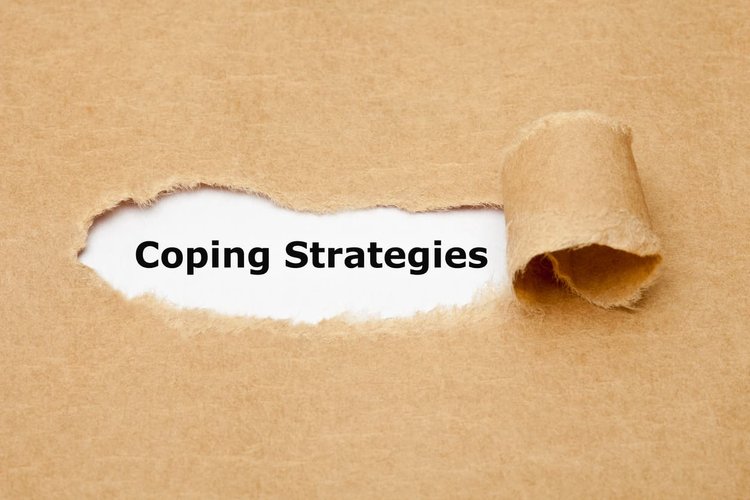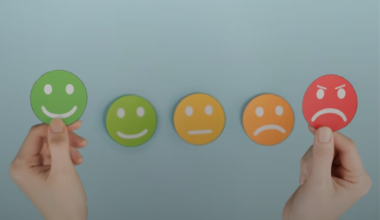Life as a teen sometimes feels like a roller coaster of emotions, doesn’t it? It’s quite normal to feel overwhelmed at times, what with the pressure of school and your social life as well. That’s why I have put together a list of 50 coping skills for teens just like you. This post is for you if you’re a teen looking for tips on how to unwind after a long day or to destress. And if you’re a parent or guardian who just wants to learn how to help your teen handle stress properly, then keep reading too. In this article, you will learn some of the best coping skills for navigating the ups and downs of teenagehood.
Before we get into them, what are coping skills?
Key Takeaways
- Coping skills are a set of methods, tactics, and behaviors that people use to manage the different pressures, challenges, and emotional difficulties that they face in life.
- According to the Annual American Psychological Association Poll, school is one of the leading causes of stress. Time management, family finances, and social relations are also among the top five stressors for teenagers.
- Some helpful coping skills are listing your positive qualities, planting a flower, spending time in nature, practicing yoga, jumping on a trampoline, and going for a walk.
What Are Coping Skills?

Coping skills are a set of methods, tactics, and behaviors that people use to manage the different pressures, challenges, and emotional difficulties that they face in life. These strategies are very important in supporting your mental well-being and emotional resilience, especially when it comes to teenagers who are going through physical, emotional, and social changes. Coping strategies for teens can include a variety of approaches, which we will discuss at length in this article.
By teaching your teen these coping skills, you’re giving them the tools they need to effectively manage stress as they face the challenges of their adolescent years.
50 Coping Skills for Teens

Here are 50 helpful coping skills for teenagers who are going through tough situations and need help dealing with them effectively:
- Drawing
- Going to the library
- Dancing to music
- Journalling
- Making a gratitude list
- Writing a poem
- Holding an ice cube
- Listing your positive qualities
- Planting a flower
- Spending time in nature
- Practicing yoga
- Jumping on a trampoline
- Going for a walk
- Reading a book
- Cleaning your room
- Baking something
- Learn a new skill
- Listening to music
- Playing a musical instrument
- Eating a healthy snack
- Taking a bubble bath
- Taking a cold shower
- Drinking plenty of water
- Reducing your caffeine intake
- Watching a comedy movie
- Trying aromatherapy
- Counting backwards from 500
- Going for a run
- Tensing and relaxing your muscles
- Using a stress ball
- Thinking of a peaceful place you love
- Snuggling with your pet
- Listening to birds
- Visualize yourself calming down
- Calling a friend
- Forgiving someone
- Crying it out
- Yelling into a pillow
- Telling yourself in a difficult situation, “What can I learn from this?”
- Exercising
- Getting a hug from someone
- Seeking the company of someone you love
- Watching funny YouTube videos
- Reading inspirational quotes
- Gardening
- Taking a nap
- Watch your favorite show
- Use a relaxation app like Calm or Headspace
- Speaking with someone you trust
- Don’t be so hard on yourself
Signs That Teens Need Better Coping Skills

It is extremely important that teens possess coping skills because they confront several challenges. According to the Annual American Psychological Association Poll, school is one of the leading causes of stress. Time management, family finances, and social relations are also among the top five stressors for teenagers. It might get overwhelming for a teenager with inadequate coping strategies to deal with difficult situations. If you have noticed any of the following signs, it might be an indication that you need to improve your coping skills:
- Putting off or ignoring obligations
- Poor academic performance
- Possessing negative thoughts
- Withdrawal from family and friends
- Low self-esteem
- Difficulty sleeping or excessive sleeping
- Change in eating habits
- Issues remembering, focusing, and concentrating
- Substance abuse
Truthfully, feeling stressed and overwhelmed is quite normal. There’s just a lot of pressure around you, and even the best of us do get affected. But what really matters is how you deal with it. Hence, it’s in your best interests to develop better coping skills if you’ve noticed any of these signs.
Types of Coping Skills

While there are numerous coping skills, there are five categories of coping skills that are generally acknowledged. The most effective solutions help you approach the source of your stress rather than avoid it. Here are five types of coping skills:
Problem-Focused Coping
Taking a direct step to correct an issue is often the quickest approach to ease your stress. This particular approach works best when you are faced with a specific problem that is also solvable. Problem-focused coping skills typically involve gathering as much information as possible about the situation, including the people who can help you find a solution. Then, you break the problem down into manageable chunks and address it one step at a time. The problem seems more surmountable once you’ve had time to break it down into practical steps, thus easing your tension.
Emotion-Focused Coping
Stress is not only a result of what is happening to us or going on around us. Stress can also be induced by what is going on inside of us. The way you react to your thoughts and feelings affects how much a situation may or may not influence your stress level. As a result, emotion-focused coping skills help you control your emotional responses to situations.
An example of such skills is a simple breathing and relaxation technique. This would help you to regulate your neurological system and also promote a sense of calm. Creatively expressing yourself through music, painting, or dancing can also assist you in processing your emotions constructively.
Meaning Making
Meaning-making is another approach to coping with stress. This type of coping skill helps you to change your perspective on a particular event or situation. By trying to see the positive aspects of a difficult situation, you may be more inclined to change how you feel about the whole thing. It involves shifting your mindset and point of view so you can see the event, situation, or person with new eyes and in a more positive light.
One such coping skill that falls under this category is journaling. Journaling helps you put your thoughts into context and also make sense of your experiences as part of a bigger picture.
Religious Coping
Faith traditions have been quite helpful for many people. This type of coping does not have to be religious, but it does provide social and emotional support, which is very needed. Spending time in nature instills amazement and thankfulness and reminds you that you’re a part of something bigger than yourself. Volunteering is one activity that you can engage in. It will help you connect with new people. Volunteering is also known to reduce stress and increase general health and well-being.
Social Support
One of the most beneficial coping strategies for teens is turning to others for assistance in solving a challenge. It is a mood booster that can help reduce a specific stressor. According to research, girls employ the social support approach more naturally than boys. This is because boys are more likely to use avoidant methods. Some helpful social support strategies you can employ are:
- Connecting with a good friend who helps you feel appreciated for who you are.
- Reaching out to your parent or a trusted adult, such as a coach or a school guidance counselor, and opening up to them.
What Are Unhealthy Coping Skills for Teens?

Teenagers who lack the necessary coping skills they need when stressed may turn to ineffective coping techniques to escape their pain. Some of the typical, harmful coping mechanisms that teenagers engage in include:
- Avoidance: trying to avoid an uncomfortable situation
- Misdirected wrath: using rage or hostility to cover up melancholy or release other painful emotions.
- Overuse of social media: distracting yourself from unpleasant emotions by spending more time on social media.
- Substance abuse: taking alcohol or drugs as a self-medication for dealing with anxiety or depression.
- Self-harm: deliberately inflicting pain on yourself as a way to cope with pain, tension, and anxiety.
- Disordered eating: Teenagers may resort to disordered eating to cope when they feel out of control.
As a parent, if your teen is adopting any of these unhealthy coping skills, try to remember why they are acting out in the first place. Your teen is not trying to be difficult unnecessarily; rather, this is the best way they know how to deal with the pain they are experiencing. That is why they have resorted to such coping mechanisms. Giving them a list of healthy coping skills for teens may not eliminate their negative behavior, but it will show them that they have better options to turn to when they are struggling or stressed.
Coping Skills for Teens Free PDF
Coping skills play a crucial role in helping you to navigate the challenges of adolescence. In addition to the ones already provided in this article, this PDF also offers valuable and practical tips that will equip you with ways to manage stress and everyday pressures. Download the PDF here and empower yourself or your teen with these life skills.
Mental Health Treatment When Teen Coping Skills Aren’t Enough
While coping skills are important for teenagers, they might be insufficient when a teen is dealing with an underlying mental health condition. In such cases, these coping skills must be part of a more comprehensive therapy approach. Such cases should be treated urgently so that the concerned teen can begin to get the needed care from a therapist.
What Are the Coping Mechanisms Used by Adolescents?
Taking an active break from something that is creating stress is an excellent method to refocus thoughts and energy. If your child is struggling to cope, explain to them that taking it easy on occasion is not lazy; it is actually quite healthy, especially if they have been going through a stressful time.
What Are the Four Unhealthy Coping Strategies That Teenagers May Use When They Are Struggling?
Unhealthy coping mechanisms are practices that provide temporary relief but may aggravate pain in the long run. Substance addiction, avoidance, self-harm, and negative self-talk are some of the most prominent examples of unhealthy coping strategies.
What Are the Five C’s of Coping?
Jeffrey Mangrum, a Chicago-based trainer, describes the five C’s – clarity, choice, control, conditioning, and confidence – as tools for learning to respond to stress in a healthy, more productive manner.
Conclusion
As I stated earlier, facing problems is quite normal and to be expected in life; nevertheless, armed with these skills, you will be better prepared to deal with anything that comes your way. These coping skills for teens will help you shine brightly even on the darkest days. Remember that it’s okay not to have your entire life figured out now. Just take it a day at a time and choose to live in the moment!
Related Articles
- Are You Depressed or Lazy? A Guide to Mental Well-Being
- Cognitive Symptoms of Schizophrenia: All You Need
- Emotional Abuse From Parents: Telltale Signs, Examples And How to Deal With It






